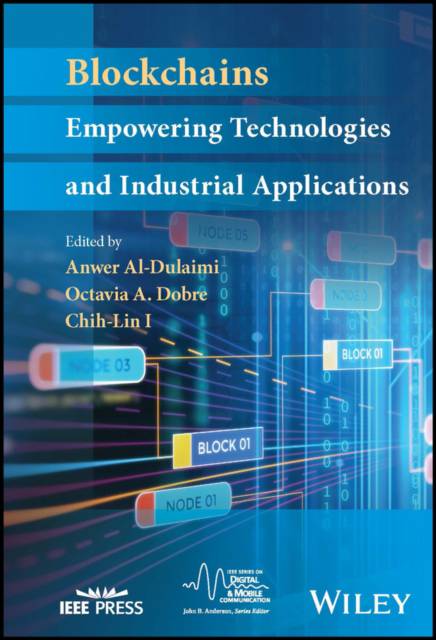
- Retrait gratuit dans votre magasin Club
- 7.000.000 titres dans notre catalogue
- Payer en toute sécurité
- Toujours un magasin près de chez vous
- Retrait gratuit dans votre magasin Club
- 7.000.0000 titres dans notre catalogue
- Payer en toute sécurité
- Toujours un magasin près de chez vous
Blockchains
Empowering Technologies and Industrial Applications
Description
A comprehensive guide to the most recent developments in blockchains in theoretical and industrial perspectives
Originally introduced as a method to keep track of Bitcoin transactions over a peer-to-peer network, blockchain is a continuously growing list of records, called blocks, which are linked and secured using cryptography into a chain held in public databases. The use of this technology has grown since its cryptocurrency creation and now store three types of information: 1) transactions, including the date, time, and value of purchases; 2) records of participates in transactions; and 3) unique code known as a "hash" that distinguishes one block from another. A single block on the blockchain can hold 1 MB of data, or potentially thousands of transactions -- this then can allow for hundreds of thousands of transactions to be recorded as each block can join the state-of-the-art blockchain.
Blockchains provides a detailed overview of the latest and most innovative concepts, techniques, and applications related to the developing blockchain. Aimed at novices and experts on the subject, the book focuses on blockchain technologies, integrated systems, and use cases, specifically by looking at three major technical areas: blockchain platforms and distributed database technologies, consensus and fault tolerance, and Blockchain as a Service (BaaS). These avenues of research are essential to support blockchain functionalities, such as acquiring and updating existing data, securing data resources and the recovery of failures, and using blockchains in various services that range from cryptocurrencies to cloud automation.
Blockchains readers will also find:
- Brainstorming activities that gradually builds the knowledge of readers on the described technology and deployment scenarios
- Investigation of specific topics such as novel networking protocols, wireless techniques, new infrastructure designs, operations management, and deployment strategies
- Discussion of technical challenges in blockchain, as well as how to manage cloud-based networks, service automation, and cyber security
- Numerous elementary and advanced examples on various topics at the end of the book that can be used for training purposes
- Illustrations including tables and diagrams to help elucidate points made throughout the volume
- Glossary of relevant terminology to blockchains in enterprise
Blockchains is a useful reference for researchers in vehicular networking and computer science, as well as cloud storage providers and governmental offices for data management.
Spécifications
Parties prenantes
- Editeur:
Contenu
- Nombre de pages :
- 416
- Langue:
- Anglais
- Collection :
Caractéristiques
- EAN:
- 9781119781011
- Date de parution :
- 03-10-23
- Format:
- Livre relié
- Format numérique:
- Genaaid
- Dimensions :
- 152 mm x 229 mm
- Poids :
- 716 g

Les avis
Nous publions uniquement les avis qui respectent les conditions requises. Consultez nos conditions pour les avis.





